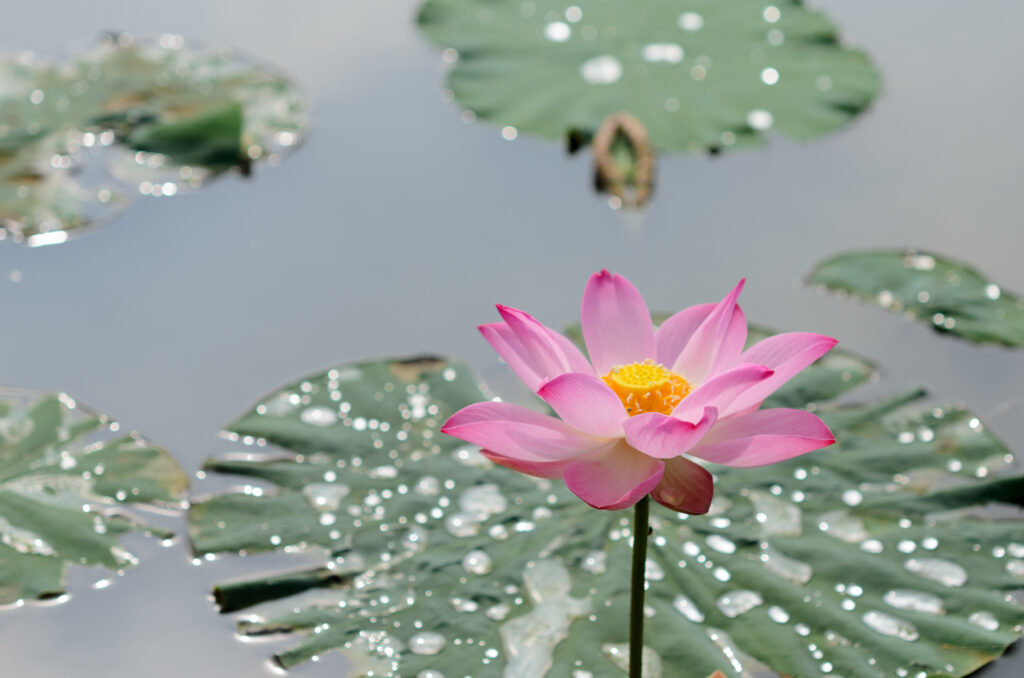Tai chi, an ancient meditative martial art and one of the healthy offerings at this year’s EiH Conference, can do wonders for just about anyone’s mental and physical well-being.
In fact, it might be easier to list what tai chi won’t do for your health than to fill this post with the dozens of known benefits tai chi practice can bring. This 3,000 year-old method of martial arts originated in China as a form of self defense. Now, tai chi acts as meditation in motion, offering serenity through slow and soothing body movement.
Would you love to start each day with gentle stretching exercises and meditative breathing? We sure would! That’s why we’re kicking off the first full day of the 2018 Excellence in Healthcare Conference with a beachside tai chi lesson at 6 a.m. on Monday, May 21.
But what exactly is tai chi?
Tai chi has its roots in two important elements of Chinese philosophy, qi and yin/yang. Qi (said “chee”) is the energy force believed to flow through all of our bodies. Have you ever heard someone complaining that their qi was off? This philosophy gave us that expression! Through practicing tai chi or other meditative exercises, Chinese philosophy believes you can unblock your qi for better flow, putting you in a more peaceful mental state.
Perhaps even more popular in western culture are the ideas of yin and yang, the opposing elements thought to compose the universe. Often depicted as light and dark, yin and yang must achieve and remain in balance to attain harmony. Yin gives us concepts such as soft, yielding, and feminine, while yang concepts include all things hard, rigid, and masculine. The practice of tai chi promotes balance between the two.
Where does this philosophy come from? You may have heard of the ancient Chinese philosophy of Taoism, which stresses the natural balance in all things and the importance of living in spiritual and physical accord with the patterns of nature. According to this philosophy, the opposite, yet complementary elements work in a perpetually balanced relationship to compose the universe. Tai Chi consists of exercises equally balanced between yin and yang, making it remarkably effective.[1]
Tai chi has withstood the test of time because those who practice it — no matter when or where they live — have experienced incredible health benefits. Research has shown tai chi to be quite effective at improving one’s mental and physical health. Benefits include decreased stress, anxiety, and depression, as well as improved aerobic activity, flexibility, and muscle strength. Further, those who regularly practice tai chi experience enhanced quality of sleep, lower blood pressure, relief of joint pain, and a reduced risk of falls. Some research even suggests that tai chi improves the balance and stability in those with Parkinson’s.[2] So how can physical activity that emphasizes slow movement and steady breathing do so much for the human body? Dr. Gloria Yeh, internist and assistant professor at Harvard Medical School weighs in.
“Although you aren’t working with weights or resistance bands, the unsupported arm exercise involved in tai chi strengthens your upper body,” she said in Harvard Women’s Health Watch. “Tai chi strengthens both the lower and upper extremities and also the core muscles of the back and abdomen.”
Tai chi is also as inclusive as it is useful. Its slow motion behavior makes it easy for those not in peak health to practice. Tai chi has an excellent safety record and can be easily adapted for anyone to practice, from top athletes to people confined to wheelchairs or recovering from surgery. Because it relies on breathing and meditation just as much as it does movement, tai chi is extremely low impact and puts very little strain on muscles and joints. And what better setting to practice meditation in motion than on an early morning beach, with fresh spring air and a day full of fun learning ahead of you? See you on the sand, Excellence in Healthcare Conference-goers!
[1] https://taichiforhealthinstitute.org/history-of-tai-chi-2/
[2] https://nccih.nih.gov/health/taichi/introduction.htm

